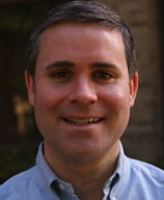
Notre Dame’s Wilson Sheehan Lab for Economic Opportunities (LEO) has received a $435,000 grant from the National Institutes of Health (NIH) for a two-year study of Stay the Course, a program designed to keep low-income community college students on the path to academic success.
LEO—a research center that aims to identify innovative, effective, and scalable anti-poverty programs through impact evaluations—worked in partnership with Catholic Charities Fort Worth to launch Stay the Course. The program is an effort to help students stay in school and earn degrees by overcoming the personal challenges that lead to dropping out, especially for first-generation students.
Two semesters after the start of the program, the results from the first pilot phase site, Tarrant County College in Fort Worth, indicate that Stay the Course students have accumulated more total credit hours and are significantly less likely to drop out. That success has led LEO and Catholic Charities to expand the program to a second community college site in the area this year.
 James Sullivan
James Sullivan
“The idea is not just to provide a bandage to a temporary problem, but to invest in human capital so people can permanently increase their earnings, have stable employment, and find better job matches,” said James Sullivan, the Rev. Thomas J. McDonagh, C.S.C., Associate Professor of Economics, who co-founded LEO with William N. Evans, the Keough-Hesburgh Professor of Economics and chair of the Department of Economics.
Students selected to participate in Stay the Course are paired with a case manager who helps them develop a plan for success. They receive guidance and support on how to move past non-academic hurdles in order to stay on track to graduate or transfer to a four-year college. They are also directed to affordable child care or other social services that will aid them in their pursuit of an education.
The NIH grant will support LEO in implementing its evaluation of the program, including refining the enrollment process, structuring a research design, and analyzing, summarizing, and disseminating the research results. It will also support research funding for LEO faculty affiliate Melissa Kearney, a professor of economics at the University of Maryland and a co-principal investigator on the project.
Catholic Charities Fort Worth has been critical to the success of Stay the Course, Sullivan said, and has touted the program’s effectiveness to other agencies across the country and in testimony CEO Heather Reynolds gave to the U.S. House Budget Committee last year.
“It’s been inspiring to see the great work that they do and the services they provide,” Sullivan said. “As a researcher, I’m often working with data, an arm’s length from the actual people. This has been an eye-opening experience to be able to visit the service provider and hear the stories of the clients that got help firsthand.”
The promising early results of Stay the Course—the subject of a 2014 installment of the “What Would You Fight For?” series—have led LEO to expand it faster than initially planned, though a wider rollout will have to wait for further refinement and development of the program.
But there certainly is opportunity for implementation on a much broader level, Sullivan said.
“There are community colleges all across the country that are struggling with this issue,” he said. “And most are in large or midsize cities where there are service providers who are interested in providing this type of program. The idea that it’s replicable and scalable fits right in line with what we do.”
Originally published by at al.nd.edu on June 26, 2015.